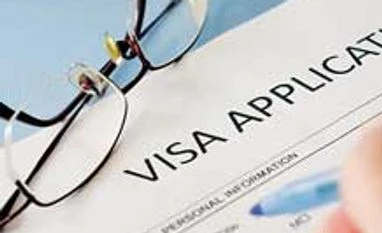It said the move had hurt Indian IT companies and was “specifically” targeted at them. India had formally approached WTO, seeking consultations with the US on this particular case in 2011-end and the matter went on till early 2012, even as the US government raised the fee for H-1B and L-1 visas in 2010. However, the case was not pursued, as the government “failed to obtain the required data” from Indian IT companies such as Infosys, Wipro and Tata Consultancy Services (TCS), officials told Business Standard. Now, armed with evidence, the government has decided to take up the issue.
“We have not given up on the case, we never did. We were waiting for evidence. We have received that evidence and now we are going to pursue it further,” said a senior commerce department official. Although the government officially maintains that the particular move is not related to the Infosys civil settlement issue, top officials who are involved in the matter have told Business Standard that trigger is indeed the Infosys case. In its complaint to the WTO, India has said the US has violated WTO rules in services trade on commercial presence of a country in another, and in movement of professionals.
More From This Section
The US is using a particular law — Public Law 111-230 (Border Security Act) — that nearly doubled skilled worker H-1B and L1 visa fee, to as high as $4,500 (about Rs 2.78 lakh) per applicant (from around $2,320 (about Rs 1.43 lakh earlier), for any company in which foreigners are more than 50 per cent of its US work force. It was put into force from August 13, 2010 till September 30, 2014. However, under the James Zadroga Act, it got further extended to 2015.
The funding for the $4.2 billion James Zadroga 9/11 Health and Compensation Act is partly drawn from imposition of tax on any foreign entity that receives a specified federal procurement payment equal to two per cent of the amount of such specified federal procurement payment.
Imposition of such two per cent tax on countries which are not signatories of the WTO Government Procurement Agreement such as India is discriminatory and may be inconsistent with US’s international commitments, India has said in its complaint.
While H-1B visas are for non-immigrant specialty workers, L-1 visas are for intra-company transferees (L-1A category for managers or executives; L-1B for ICT specialists).
India now is also closely watching the development on the recent debate going on in the US on the immigration bill. Minister for External Affairs Salman Khurshid and Minister for Commerce and Industry Anand Sharma have said that some of the provisions in the bill are not conducive for Indian IT companies. They have not ruled out dragging the US to WTO on the issue also if the bill is passed in its present form.
)